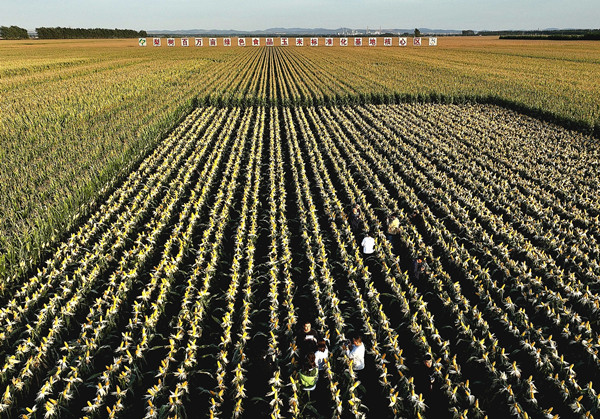
An expanse of prime corn fields, under cultivation in Siping. [Photo provided to gojilin.gov.cn]
In September, Siping city in Jilin province – known as the "Grain Warehouse of Northeast China" – is flourishing, thriving with all sorts of agricultural vitality thanks to the constant rejuvenation of its land.
As a major grain-producing area and a key commodity grain base in China, Siping has always prioritized food security and it strives for high-quality development in its grain industry.
For Jilin is rich in black soil – a type of highly fertile earth that takes hundreds of years to form a layer one-centimeter thick – and this has made it China's major grain-producing province.
To prevent the fertility of the black soil from being degraded and to maintain its productivity, the province has been undertaking conservation tillage, a form of tillage designed to minimize the use of plows and prevent the loss of topsoil.
Lishu county there, administered by Siping, offers a sterling example of the practice. After reducing the use of chemical fertilizers and covering fallow farmland with corn stalks to raise its productivity, the county has effectively countered agricultural degradation and conserved its soil resources.
Through years of exploration, Siping's Lishu Model has expanded its cultivation area from 3.66 million mu (244,000 hectares) in 2020 to 6.23 million mu in 2024 – ensuring full coverage of all suitable areas and reversing the trend of thinning, shrinking and hardening of black soil layers.
Siping Vice Mayor Guo Shunjie stated that the city's grain planting area has been steadily increasing, reaching 8.91 million mu this year, laying a solid foundation for stable yields.
Preliminary autumn harvest assessments show a significant reduction in disaster-related damage to grain production, indicating that Siping is poised for yet another bumper harvest.
Overall, the city is aiming to achieve what it calls its "21st consecutive year of abundant harvests" – showcasing its commitment to food production and security.







